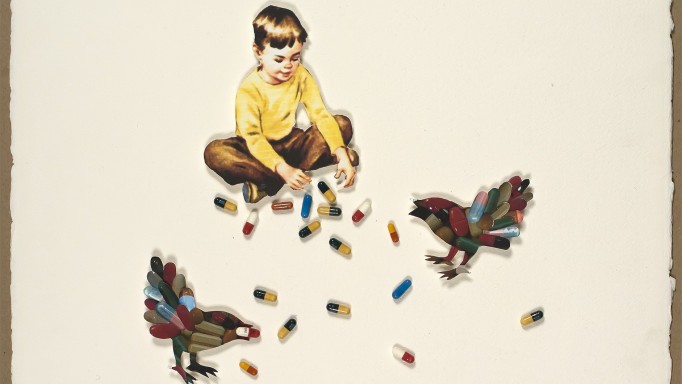Write a Comment
10 Comments
It actually can't be assumed that START will provide reliable information, as it is possible that there will be no significant difference between starting earlier vs. later over the trial's duration of follow up, but significant differences would emerge if people were followed for 10 or 15 years. That is a plausible outcome of waiting to start until someone's immune system resembles that of a much older person. Doesn't mean the trial shouldn't be conducted, but it needs to be borne in mind. The arguments in this blog post are entirely based on the idea that prevention of transmission is the only reason why anyone would recommend earlier treatment. But even if you disagree with how the available evidence is being interpreted by people such as the US guidelines panel, that isn't true.
There is no lack of evidence for the deleterious effects of sustained immune activation with persistent inflammation that is at the heart of HIV pathogenesis. What’s lacking is reliable evidence that there will be an overall net benefit to an early initiation of treatment; that the benefits will outweigh harms resulting from prolonged drug exposure, as obviously the case in people starting treatment before the CD4 count drops below 350. Yes, there is evidence from observational and retrospective studies that support an early initiation of treatment but experience outside HIV medicine has more than once demonstrated that treatment guidelines based on such studies have actually caused harm when the interventions have been tested in prospective randomized trials. The best example is the use of hormonal replacement therapy in postmenopausal women. The Nurses’ Health Study is a huge undertaking started in 1976. It provided compelling evidence for a reduced risk of death and of major coronary artery disease in women who used hormonal replacement therapy compared to those who did not. 120,000 nurses were enrolled in this study which lasted many years. (1) There was great resistance to conducting a prospective randomized study; it was considered to be unethical to deprive people receiving placebo of the benefits of hormonal replacement. But a prospective randomized study was conducted in postmenopausal women. It was halted because of a statistically significant increased risk of myocardial infarction, stroke and breast cancer in women receiving hormonal replacement therapy. (2) I have summarized this from an account written by John Falkenberg in May 2009. His account can be read here: http://aidsperspective.net/blog/?p=567 . He gives an additional example where guidelines made without data derived from controlled randomized trials resulted in recommendations that did more harm than good. What makes the example of the relationship between oral contraceptives and heart disease particularly relevant to the controversy about initiation of treatment for HIV disease is that there are ample biological reasons to justify a belief in the protective effects of estrogen on atherogenesis. The question as to whether in HIV disease, early initiation rather than a deferral of treatment results in a net benefit, is harmful, or makes no difference apart from cost has not yet been answered. START will provide reliable information to inform the treatment choices of HIV positive individuals. Unlike the kind of evidence derived from observational studies or expert opinion, evidence from randomized controlled trials comes from directly testing a proposition under conditions that go as far as possible to minimize bias. The results are safer from the influences of a belief in or a mistrust of the intervention, a sense of conviction that it does or does not work, or a trust in biological plausibility even in the absence of complete information. People with HIV deserve the most reliable information to inform their treatment choices. http://www.ncbi.nlm.nih.gov/pubmed/3185634?dopt=Abstract http://en.wikipedia.org/wiki/Women's_Health_Initiative
In case I sound horribly sanctimonious, I should maybe point out that I had a very different opinion on this topic ten years ago: http://www.thebody.com/content/art14330.html
It's not necessarily a case of faith over evidence. I think the disagreements that exist are more to do with what evidence people are looking at/aware of, and the weight different people accord to evidence that is not from randomized controlled trials. Given the history of advocacy for early intervention in the days of mono and dual therapy, which was clearly foolhardy and based on very little evidence at all, it is completely understandable that arguments for early treatment are still viewed with skepticism, particularly by people who lived through that history. But it is a mistake to think that the evidence base is similarly slim now. The literature on the progressive immunological attrition that occurs in untreated HIV infection--even in many elite controllers--is both voluminous and consistent: a gradual diminution of naive immune cells, both T cells and B cells, that mirrors that seen in natural aging but at a greatly accelerated pace, and an accumulation of dysfunctional and senescent (essentially worn out) T cells (and again B cells, although there is less data on this). This erosion of the immune system is driven by immune activation and inflammation, which are elevated in untreated HIV infection and correlate closely with the pace of disease progression. While suppression of HIV replication by ART can restore some key elements of immunity, such as memory responses against opportunistic pathogens, regaining immunological naiveté is not so straightforward, it is typically slow and linked to age (the older a person is, the slower it occurs). Similarly, senescent cells do not automatically disappear but tend to persist, moreso in individuals who have poor immune reconstitution despite HIV suppression. There is also typically persistent immune activation and inflammation, the magnitude of which correlates with the CD4 count at the time of starting; in other words, the longer someone waits to start, the higher the residual inflammation that persists after starting. And inflammatory biomarkers very strongly predict poor health outcomes. Taken together with the literature on inflammation and immunosenescence in the HIV-uninfected elderly, these aspects of pathogenesis cause many people, including me, to be greatly concerned about the long term effects of later initiation of ART. As there seems to be no dispute that inflammation is a bad thing, it seems unequivocally to be the case that suppressed HIV is better than unsuppressed HIV. The remaining question is whether the current tools to suppress HIV are safe enough that the obvious dangers of inflammation and immune dysregulation are not outweighed by the drugs. For some, an assessment of the current evidence on earlier ART, including all the cohort data, the analysis of treatment naive people in SMART, etc. etc., leads to the conclusion that the question is already answered. You can dispute that conclusion, but it is not crazy or irresponsible and it is evidence-based. And while RCT's are an evidentiary gold standard, it's not clear whether START will actually run long enough to detect long term manifestations of immune senescence as people age.
Those who find it astonishing that in 2011 anyone should even suppose that all HIV infected pesons should not be on treatment must prefer a faith-based rather than an evidence-based approach to medicine. If people with more than 500 CD4s benefit from treatment the START trial will povide the evidence for this.
Mr. Strub seems to think that it's clear that these (shelved) recommendations constitute (or would constitute, except that they've been shelved) an all-too-typical stripping away of the autonomy of individuals with HIV in the name of the nebulous "public health." The justification for that depiction doesn't seem at all clear to me. The recommendations (that weren't recommended) were, according to his own description, for COUPLES who are sero-discordant -- intended to address the unique concerns of these couples. They were not for the entire population. dewayne dean
Just a few comments: The HPTN 052 trial does not say anything about whether gay couples might benefit from the same protection from treatment that is the case for straight couples. It seems premature to draw that conclusion at this stage, but it is implied here. While many are very pleased with the potent drugs that we have available all concerns about long-term side-effects seem suddenly to have been forgotten. Starting treatment early may seem like a good idea (not least to hiv-negative partners of poz-people) but there is no definite scientific proof yet that this is actually the case. The START-study will hopefully answer that question in a few years time.










Roger
In whose name do you speak? Who do you represent? I wonder if you have ever considered asking those who are in a serodiscordant relationship if they place "human rights" before protecting those who they love and cherish?
August 17, 2011